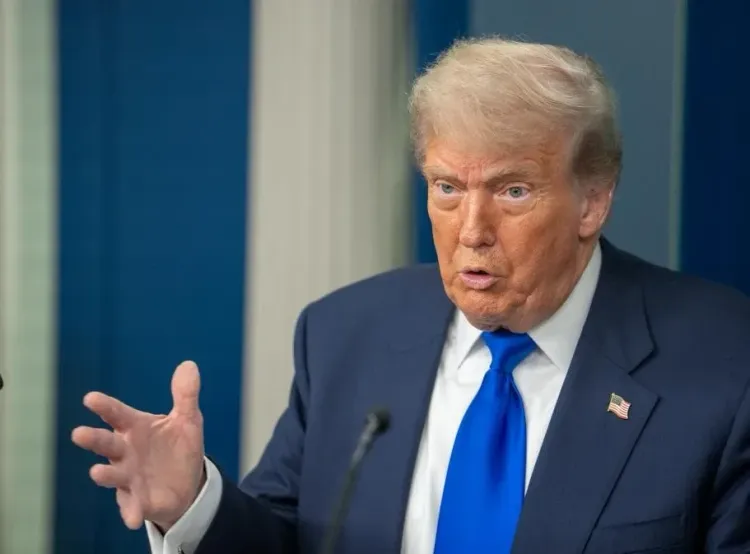Did Iran Condemn Trump's 'Offensive' Remarks on Officials?

Synopsis
Key Takeaways
- Iran strongly condemned President Trump's remarks.
- The comments were labeled as insulting and undiplomatic.
- Iran emphasizes the need for respect in international relations.
- Trump's statements could escalate tensions further.
- Ceasefire efforts are ongoing amidst rising conflicts.
Tehran, June 30 (NationPress) The Iranian Ministry of Foreign Affairs on Monday dismissed the “offensive and insolent remarks” made by US President Donald Trump regarding senior Iranian officials.
According to a statement from the Iranian Foreign Ministry, “Such insolent statements and undiplomatic behaviour not only constitute a flagrant violation of universally shared moral principles and the provisions of the Charter of the United Nations—particularly the principle of respect for the right of nations to self-determination—but also represent a blatant affront to a dignified nation with an ancient civilization, and deeply wound the sentiments of hundreds of millions of Muslims across the region and the world.”
The statement further emphasized that “insulting and bullying rhetoric” aimed at Iran and its political and religious figures, who are revered by Iranian citizens and Muslims globally, only serves to increase global revulsion and indignation towards the United States’ short-sighted policies, while undermining its claimed desire for dialogue and engagement.
The Iranian Foreign Ministry also condemned what it termed the “offensive and inappropriate remarks” and “conduct of the President of the United States” regarding Supreme Leader Ayatollah Ali Khamenei and the Iranian populace.
Iranian officials advised their American counterparts to “refrain from resorting to insulting rhetoric” and instead focus on being accountable for their government’s blatant violations of international law—especially regarding their unlawful attack on Iran’s peaceful nuclear facilities and the ongoing support for the Zionist regime’s atrocities against the Iranian people and the broader region.
These remarks followed President Trump's recent comments on his social media platform, where he claimed he saved Khamenei from “a very ugly and ignominious death” and accused the Iranian Supreme Leader of making false statements about victory over Israel.
Last week, Trump announced a ceasefire between Iran and Israel after 12 days of escalating military conflict, urging both sides to maintain restraint.







